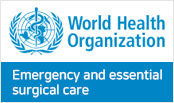| Nasal Colonization Rate of Methicillin Resistant Staphylococcus Aureus among Age Group of Spinal Fusion Surgery. |
|
Ha Na Yoo, Byung Kwan Choi, In Ho Han, Shine Young Kim, Eun Young Yun |
1Catholic Medical Center, The Catholic University of Korea, Korea.
2Department of Neurosurgery, Pusan National University College of Medicine, Busan, Korea. spine@pusan.ac.kr
3Department of Laboratoy Medicine, Pusan National University College of Medicine, Busan, Korea.
4Department of Biostatistics, Medical Institute, Pusan National University Hospital, Busan, Korea. |
|
|
|
|
| Abstract |
OBJECTIVE
Methicillin resistant Staphylococcus aureus (MRSA) is the most common cause of postoperative infection in instrumented fusion surgery. Although MRSA is well-known cause of nosocomial infection, emerging evidence supports that there could be MRSA infection from community. This study evaluated the nasal colonization rate of MRSA among healthy adults within the age range of spinal fusion surgery in Korea.
METHODS
Nasal swabs were collected from 99 participants who visited health promotion center. A structured questionnaire regarding healthcare-associated MRSA risk factors was collected simultaneously. Staphylococcus aureus was confirmed by latex agglutination. The resistance to methicillin was identified by oxacillin screening test.
RESULTS
Of the 99 participants, 12 (12.1%) had S. aureus isolates. The nasal carriage rate of methicillin susceptible S. aureus (MSSA) was 9 (9.1%). MRSA was identified in 3 participants (3.0%).
CONCLUSION
Among the age range of possible spinal fusion surgery, nasal colonization study revealed substantial rate of preoperative MRSA carriers even in healthy adults. A postoperative MRSA infection should not be exclusively considered to be due to surgery-related contamination. |
| Keywords:
Methicillin resistant Staphylococcus aureus;Wound infection, postoperative;Spinal fusions |
|



 PDF Links
PDF Links
 Full text via DOI
Full text via DOI
 Download Citation
Download Citation








































